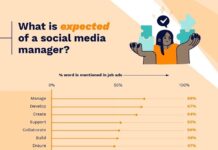Over 1.4 million fans comment and share stories on NPR‘s Facebook page, and Nieman Journalism Lab reports that this is one of the most popular media outlets on Facebook.
The referral traffic on NPR’s Facebook page has grown from 1.5 million in August 2010 to 4.5 million pageviews a month. While that traffic used to result largely from fans clicking on links that NPR posted, now as much as 50% comes from links that fans decide to share themselves, showing a high level of audience engagement.
How does NPR determine which stories to post on Facebook, and what will create the highest engagement with their Facebook fans? In August of 2010, NPR posted the results of a survey of their Facebook fans. The survey attracted 40,000 responses, the most of any survey NPR has conducted, and offered key insights into what keeps users engaged with NPR’s Facebook site.
Based on NPR’s strategy and survey results, here are some best practices for growing and maintaining an active Facebook audience:
Choose the right content to engage your audience, and they will share it with friends. NPR strategist Andy Carvin told the Nieman Journalism Lab that NPR’s Facebook posts aren’t typically the day’s lead stories. Instead, his team asks ‘Will our friends want to talk about this?’ As a result, 74% of respondents shared an NPR story with friends via Facebook in the last five months.
Tap into your existing fan base, and let them know you have a presence on Facebook. 3 out of 4 NPR Facebook survey respondents already listen to NPR on the radio, and 55% listen for 1-3 hours per day (much higher than the average NPR listener, who totals 4.25 hours per week). 25% of respondents use apps on their smartphone to access NPR (the majority use the iPhone app, but also some Android and iPad app users).
Be open and let fans set the tone of what will happen. “We feel like it’s as much theirs as it is ours,” Carvin said. “If they want to swear like sailors, [they can]. We don’t block comments just because there’s swearing, or even if they’re being snarky.” NPR will delete hate speech in the comments, but criticism is allowed to stay. 42.8% of respondents agreed they generally like the comments left by other users on NPR’s Facebook posts (swearing and all), 13.7% disagreed and 43.5% neither agreed nor disagreed.
Give an outlet for criticism. The Facebook wall is defined by official NPR postings only; fans can’t post directly on the wall. Instead, users have free reign over the “Discussions” section on the Facebook page, and can post any criticism they have of NPR there.
Be sensitive about how much your fans want to hear from you. Listen to the feedback of Facebook users to determine the right amount of posts to make per day. Have enough content to remain interesting, but not so much that fans feel bombarded with posts from your site. Carvin states that 3-4 posts per day is generally a good number, but NPR posts more like 8-10 per day after closely following the feedback of their Facebook site users (72.6% said NPR publishes just the right amount of posts to its page each day, 21.6% wanted more stories each day, and only 6% wanted less).
Give your audience additional ways to become involved. According to the Nieman Journalism Lab, Carvin says that NPR’s Facebook page has also become “one of our most important sourcing tools.” NPR posts about 3-4 queries a week, asking if listeners meeting a certain set of criteria might be willing to talk to an NPR reporter about their experiences. NPR’s Facebook fans turn out to be very willing to respond, often attracting 750 to 800 responses.
What are some of the techniques you’ve used to engage your audience on Facebook? Let us know what’s working for you in the comments below!


